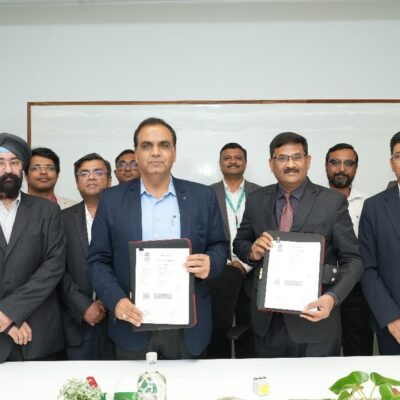
Mumbai: A research report by an international bank has claimed that affluent Indians are planning to reshape their portfolios over the next 12 months by incorporating alternative investments and managed solutions, including multi-asset strategies,
The HSBC 2025 Affluent Investor Snapshot, based on data gathered from 10,797 individual investors in 12 markets, shows a growing appetite for diversification across asset classes and geographies.
For affluent Indians, managed investments (such as mutual funds), stocks, and gold currently dominate their portfolios.
Notably, over the past 12 months, gold witnessed the highest increase in allocation, followed by alternative investments.
Globally, younger investors, especially Gen Z, are leading this shift, having tripled their allocations to alternative assets over the past 12 months.
Overall, five in 10 affluent investors globally expect to have alternative investments in their portfolios within the next year – twice the current level of ownership – with three in 10 saying they will have private markets exposure.
Sandeep Batra, Head of International Wealth and Personal Banking at HSBC India, says in the report: “There is a notable shift among affluent individuals in India toward a more strategic approach to portfolio management. There is a growing emphasis on making money work harder over extended time horizons. This evolving mindset is driving affluent investors to diversify actively across various asset classes, including alternatives, and to explore opportunities beyond their domestic markets to both grow and safeguard their wealth.”
Indian affluent investors tend to hold lower cash levels compared to their global counterparts.
At just 15 percent, affluent investors in India now have the smallest average allocation to cash in Asia, with no clear consensus on changes for the next 12 months.
Globally, once more, the younger generation is leading the move out of cash, with Gen Z and millennials reducing their average holdings from 31 percent to 17 percent.
Looking ahead, however, views on cash are split. Half of affluent investors plan to keep their allocations unchanged while two in 10 expect to reduce and three in 10 expect to increase, the report claims.
Investors in the UAE are the most likely to deploy more cash (28 percent) and those in mainland China are the most likely to increase holdings (34 percent) in the next 12 months.
Meanwhile, for Indian affluent investors, gold allocations saw the highest increase — from 8 percent to 15 percent over the past year.
Globally, half of affluent investors plan to invest in gold in the next year, with nearly three in 10 expressing interest in accessing the metal through tokenized formats.
International investing rising
While the US ranks as the top market for boosting international exposure, affluent investors globally in key international wealth hubs — Hong Kong, Singapore, UAE, UK, US — are also showing a strong preference for increasing investments in their home regions when diversifying globally, the report says.
Overall, four in 10 global affluent investors say they plan to invest internationally within the next 12 months, with the highest appetite seen in the UAE (56 percent) and Singapore (50 percent).
Global affluent investors also singled out the US, Singapore, and Hong Kong as their preferred markets to hold an overseas investment account.
Despite widely-shared concerns about global uncertainty and rising living costs, eight in 10 global affluent investors – especially Gen Z and millennials – remain confident in achieving their long-term financial goals.
Furthermore, affluent investors across all generations remain focused on preparing for retirement as their top long-term financial goal.
According to the report, 85 percent of Indian respondents expressed satisfaction with their quality of life.
Over 90 percent of Indians are confident in achieving short-term goals (up to 3 years), more than 80 percent are confident in achieving medium-term goals (3–5 years), and 86 percent are confident in achieving long-term goals (beyond 5 years).
For affluent Indians, property investment, financially supporting their families, and saving for personal well-being remain their top three financial priorities.
While Indian investors share concerns about the cost of living and economic uncertainty, they remain significantly more confident in their ability to achieve financial goals compared to the global outlook.





